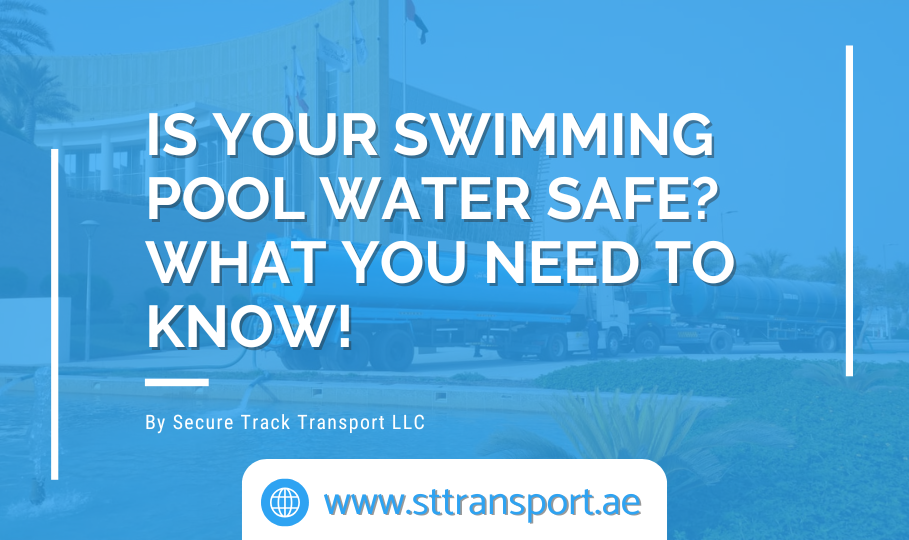Owning a swimming pool is an enjoyable luxury, but it comes with significant responsibilities—especially regarding water safety and efficiency. From ensuring the water is free of harmful contaminants to making sure your swimming pool water supply is being used efficiently, there’s a lot to consider. So, how do you know if your pool water is safe and efficient? Let’s dive in and find out!
The Importance of a Safe Swimming Pool Water Supply
Having a pool isn’t just about relaxation and fun; it’s also about health. Pool water safety should be at the top of your priority list because dirty or contaminated water can lead to serious health risks.
Why Water Safety is Crucial for Health
We all know how refreshing a dip in the pool can be, but what if the water is filled with harmful bacteria or chemicals? Poor water quality can lead to skin infections, respiratory issues, and even gastrointestinal problems. Proper chemical balance and regular testing are essential to keep the water safe for you and your family.
The Risks of Unclean Pool Water
Do you know what’s lurking in your pool water? Contaminants like bacteria, viruses, and algae can flourish in poorly maintained pools. Unclean water can cause illnesses such as E. coli infection or Legionnaires’ disease.
Common Contaminants in Pool Water
Some of the most common contaminants include body oils, lotions, dirt, and microorganisms like bacteria and algae. These can disrupt the chemical balance in your pool, making the water unsafe. Keeping your pool clean and properly chlorinated helps to eliminate these risks.
The Efficiency of Your Swimming Pool Water Supply
An efficient water supply is about more than just saving money on your water bill—it’s also about conserving resources and extending the life of your pool equipment.
What Does an Efficient Water Supply Mean for Your Pool?
Efficient water use in a pool means reducing water waste and ensuring that your pool runs smoothly without unnecessary energy or resource expenditure. This includes optimizing your pool’s water filtration system, reducing evaporation, and minimizing chemical usage.
Water Conservation Methods for Pools
Looking to save water? Consider installing a pool cover to reduce evaporation or using a multi-speed pump to optimize energy usage. Additionally, regular pool maintenance ensures that water levels remain stable, preventing unnecessary refills.
How Pool Maintenance Impacts Efficiency
Routine maintenance, like checking for leaks, ensuring proper chemical balance, and keeping the filter clean, plays a huge role in water efficiency. Not only does it prevent water loss, but it also reduces strain on your equipment, saving you money in the long run.
How to Test Your Pool Water for Safety
Maintaining proper water balance is crucial for a safe and enjoyable swimming experience. Here’s what you need to know about testing your pool water.
The Role of pH Balance in Water Quality
A pool’s pH level should range between 7.2 and 7.8 for optimal safety and comfort. If the pH is too high or too low, it can lead to skin irritation and damage to pool equipment.
How to Test Chlorine Levels
Chlorine is essential for killing harmful bacteria, but too much can be harmful to swimmers. Test your chlorine levels at least twice a week using a test kit or strips to ensure it’s within the recommended range of 1-3 parts per million (ppm).
Other Key Chemicals to Test For
In addition to chlorine and pH, it’s important to check for total alkalinity, calcium hardness, and cyanuric acid levels. Keeping these chemicals balanced ensures the water remains clear and safe to swim in.
The Benefits of Using Pool Water Filtration Systems
Filtration systems are the backbone of keeping your swimming pool water clean and contaminant-free.
Types of Filtration Systems and Their Effectiveness
There are different filtration systems to choose from, each with varying levels of efficiency. The most common types are sand, cartridge, and diatomaceous earth (DE) filters.
Sand Filters vs. Cartridge Filters
Sand filters are popular for their ease of use, but cartridge filters tend to be more effective at removing smaller particles. If you’re looking for a low-maintenance option, sand filters might be your best bet, whereas cartridge filters provide finer filtration.
Advanced Filtration Options: Saltwater Systems
Saltwater pools are growing in popularity because they are gentler on the skin and require fewer chemicals. They use a salt-chlorine generator to naturally sanitize the water, reducing the need for harsh chemicals like traditional chlorine.
Preventing Water Contamination in Swimming Pools
Keeping your pool water free of contaminants requires regular cleaning and equipment maintenance.
Regular Pool Cleaning and Skimming
Skimming the pool daily removes debris, and vacuuming the pool regularly ensures dirt and grime don’t settle at the bottom. Regular cleaning keeps the water looking pristine and prevents bacteria from breeding.
The Importance of Pool Covers
Pool covers aren’t just for keeping leaves out of the water—they also help prevent evaporation and keep your water chemistry balanced by blocking out contaminants.
Maintaining Pool Equipment
Proper care of your pool’s equipment, like pumps and filters, ensures efficient operation and reduces the risk of water contamination. Check for wear and tear and clean the equipment regularly to keep everything running smoothly.
Environmental Impact of Swimming Pool Water
Pools, while fun, can have a significant environmental footprint. Let’s look at how you can reduce your impact.
How to Minimize Water Wastage
Reducing water wastage is as simple as installing a pool cover and ensuring you fix any leaks promptly. Also, consider reusing backwash water for irrigation purposes if it’s safe to do so.
Eco-Friendly Pool Care Products
Switching to eco-friendly pool chemicals and cleaners can reduce the environmental impact of maintaining your pool. Look for biodegradable or less toxic alternatives to traditional pool chemicals.
Pool Chemicals: Friend or Foe?
While pool chemicals are essential for keeping your water clean, they can be harmful if not used properly.
Are Pool Chemicals Safe for You and the Environment?
Most pool chemicals are safe when used correctly, but overuse or improper handling can lead to skin irritation or respiratory issues. Always follow the manufacturer’s guidelines for safe usage.
Proper Chemical Handling and Storage
Store chemicals in a cool, dry place, and always keep them out of reach of children. When mixing chemicals, do so in a well-ventilated area and never mix different chemicals unless specified.
Sustainable Pool Solutions for a Cleaner Future
Looking to make your pool more sustainable? Here are some options.
Solar-Powered Pool Systems
Solar heating systems are a fantastic way to reduce your pool’s energy consumption. They use the sun’s energy to heat your pool, cutting down on electricity costs.
Recycled Water Systems for Pools
Some pools now use recycled water systems, which filter and reuse water, greatly reducing the amount of freshwater needed to maintain the pool.
Conclusion
Keeping your pool water safe and efficient isn’t just about maintaining that crystal-clear appearance. It’s about ensuring the health and safety of everyone who takes a dip while also being mindful of the environment. By following proper maintenance routines, testing your water regularly, and using eco-friendly options, you can enjoy a safe and efficient pool all season long.



